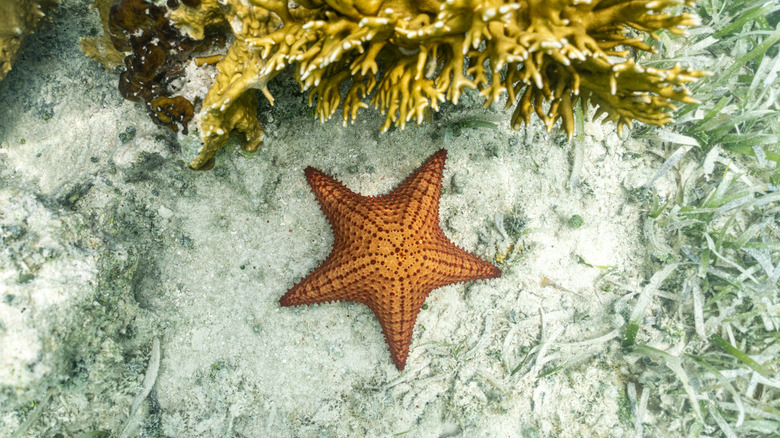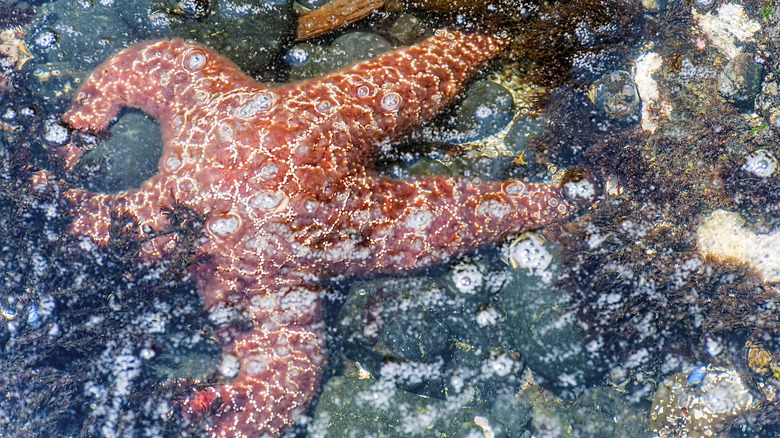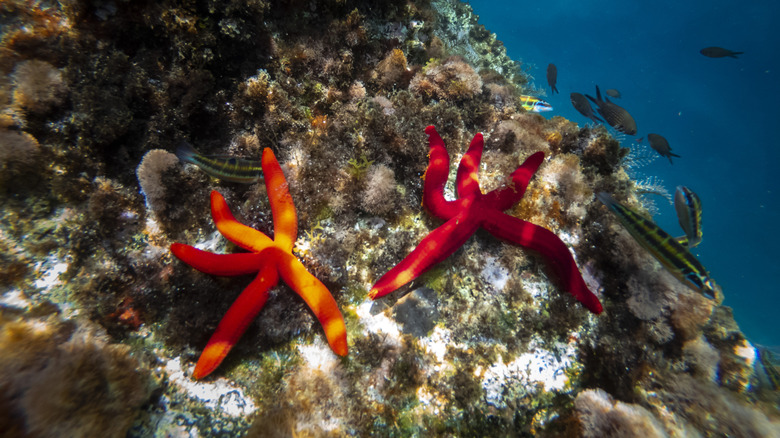Sea Stars Having Been Dying Mysteriously For Over A Decade, This Study Found Out Why
Across the last decade, a startling event has happened involving sea stars. From Mexico to Alaska, sea stars have been found with signs of disease, including lesions, twisted limbs, and disintegrating bodies. Referred to as sea star wasting disease, or SSWD, it has impacted over 20 sea star species. This large-scale loss has changed the ecosystem. It has resulted in a boom in the sea urchin population from not enough sea stars consuming them. It has also resulted in the vanishing of kelp forests, which are in turn eaten by sea urchins.
A study published in Nature Ecology & Evolution on August 4th, 2025, focused on the cause of this event. The research was helmed by the Hakai Institute and the University of British Columbia. The teams wanted to find out what was killing the sea stars and how they could help the population bounce back to avoid further ecosystem damage.
Biological experimentation uncovered that the sea stars were infected by a highly transmissible disease called Vibrio pectenicida. This breakthrough not only marks a major step in marine biology but also raises urgent questions about how to protect vulnerable ecosystems moving forward. In this time of exploration, with the discovery of a massive underwater mountain range teeming with rare marine species, conservation efforts are essential.
The research to determine why the sea stars are dying
Medical research has paved the way for greater disease understanding, like the test that can identify nearly any infection in patients. For SSWD, the research teams began by collecting infected sea stars from the water. They analyzed the genetic material of the sea stars and found a bacterium called Vibrio pectenicida. They were intrigued to find out if this bacterium was, indeed, the cause of SSWD.
First, they had to determine if the disease was transmissible. They used two groups of healthy sea stars. The controlled group stayed in clean water undisturbed. The experimental group was exposed to water and bodily fluids from the sick sea stars. This experimental group got sick and died, proving the disease could spread easily.
The next step was injecting this bacterium from sick sea stars into healthy ones. The once-healthy sea stars were killed by the disease from this experiment. For the research teams, this proved that Vibrio pectenicida was the cause of SSWD. After determining the cause, they needed to look to the future to see what to do about it.
What the future holds for the sea stars
Now that the cause has been found, research turns to how to protect sea stars and underwater populations in the future. This is especially vital for sea star breeding programs that seek to bolster the population. The disease must be screened for in order to ensure all the hard work doesn't result in more devastation.
A research scientist at the Hakai Institute and member of this discovery team, Melanie Prentice, spoke to CBC News. "I think when we're talking about sea star wasting disease, we're not just talking about the sea star species — which we love in their own right — but entire marine ecosystems that have collapsed because of this epidemic." She also pointed out how helping the sea star population would help the recovery of kelp forests, one of the effects of which will be protecting coastlines from erosion. She stated these efforts will be "our ally in the climate crisis."
Future research will also focus on determining how the sea stars became infected in the first place and under what conditions they might become resilient so that the disease is no longer a threat. Aquatic diseases not only impact the local ecosystems and species, but also humans. Oysters, for instance, can carry Vibrio parahaemolyticus, which causes people to get food poisoning if they eat an infected oyster, illustrating how diseases that infect our animals and plants directly impact our health. So, studies like this, and like ones for disease-resistant pork, are essential for the well-being of our future.


